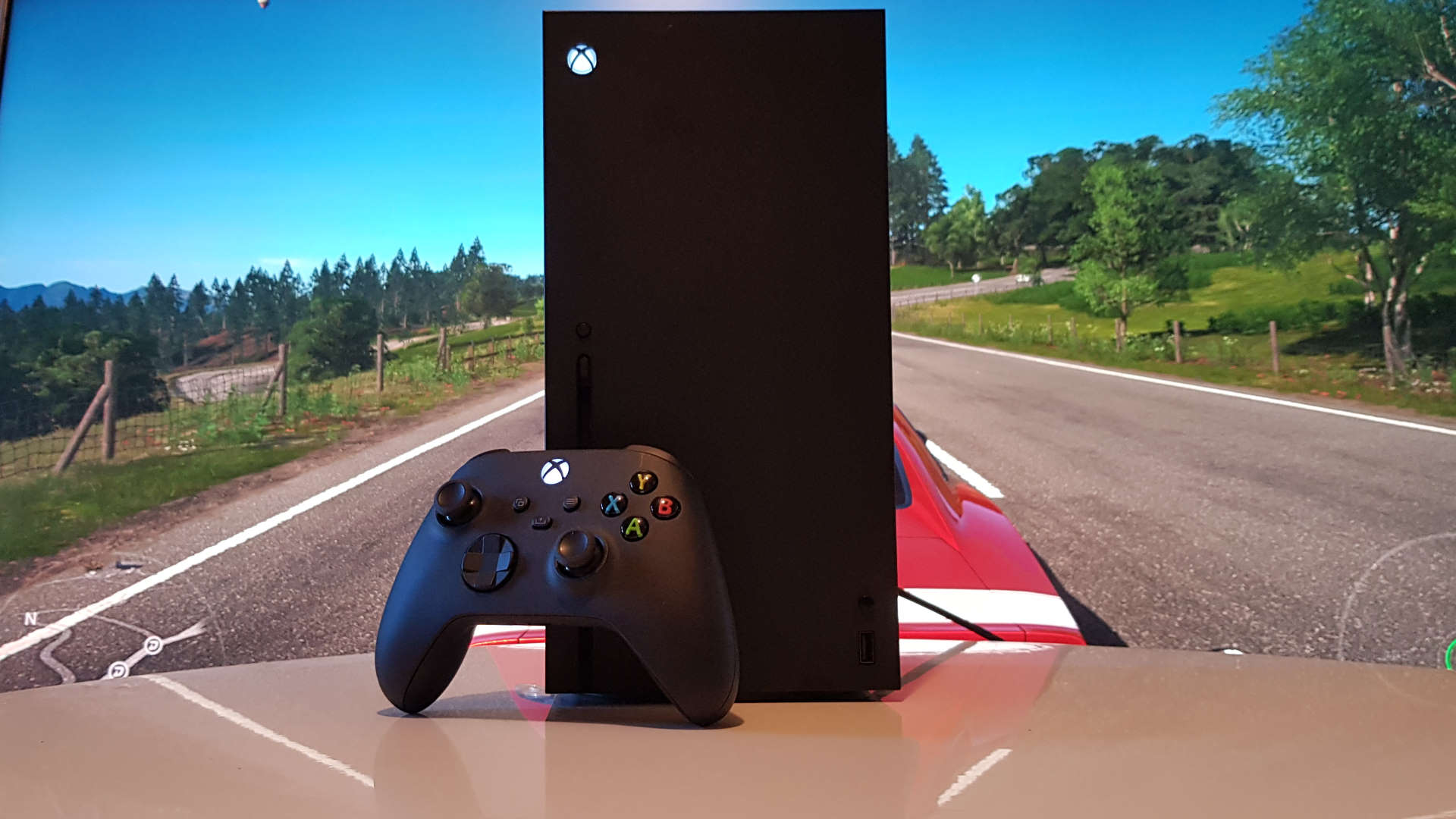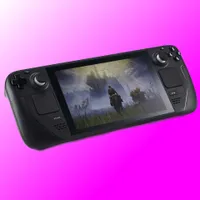Microsoft announces new dream team partnership with AMD on a 'portfolio' of next-gen Xbox devices, all with backwards compatibility with existing games
Console, handheld and PC, all based on silicon co-engineered with AMD.
Keep up to date with the most important stories and the best deals, as picked by the PC Gamer team.
You are now subscribed
Your newsletter sign-up was successful
Want to add more newsletters?

Every Friday
GamesRadar+
Your weekly update on everything you could ever want to know about the games you already love, games we know you're going to love in the near future, and tales from the communities that surround them.

Every Thursday
GTA 6 O'clock
Our special GTA 6 newsletter, with breaking news, insider info, and rumor analysis from the award-winning GTA 6 O'clock experts.

Every Friday
Knowledge
From the creators of Edge: A weekly videogame industry newsletter with analysis from expert writers, guidance from professionals, and insight into what's on the horizon.

Every Thursday
The Setup
Hardware nerds unite, sign up to our free tech newsletter for a weekly digest of the hottest new tech, the latest gadgets on the test bench, and much more.

Every Wednesday
Switch 2 Spotlight
Sign up to our new Switch 2 newsletter, where we bring you the latest talking points on Nintendo's new console each week, bring you up to date on the news, and recommend what games to play.

Every Saturday
The Watchlist
Subscribe for a weekly digest of the movie and TV news that matters, direct to your inbox. From first-look trailers, interviews, reviews and explainers, we've got you covered.

Once a month
SFX
Get sneak previews, exclusive competitions and details of special events each month!
Microsoft has just dropped a video showcasing their plans for future Xbox hardware based on AMD technology. The main takeaways? First, Xbox will become a "portfolio" of devices including traditional console, PC and handhelds. Second, backwards compatibility with existing Xbox games is central to the new strategy.
Xbox President Sarah Bond has fronted a new video on the official Xbox YouTube channel, spelling out Microsoft's plans for future Xbox hardware. Superficially, the big news is a partnership with AMD.
"We've established a strategic multi-year partnership with AMD to co-engineer silicon across a portfolio of devices, including our next-generation Xbox consoles in your living room and in your hands," Bond said.
What kind of devices, you ask? "That's why we're investing in our next-generation hardware lineup, across console, handheld, PC, cloud and accessories," Bond explained. Notably, the new Asus ROG Xbox Ally devices flashed up in the video when Bond name-checked "handheld."
Of course, Microsoft already partners with AMD on Xbox silicon and the Asus ROG Xbox Ally and Ally X handhelds have already been announced. So those elements aren't necessarily news. So what is this video really about?
There may be some internal, inside-baseball dimension to all this for Microsoft. But for gamers, arguably, two issues stand out. First, Microsoft is further signalling Xbox's transition from conventional console to a more amorphous platform.
That is most obvious in the video in the passage where Bond calls out "cloud" gaming, and a Gamepass cloud gaming interface is shown, with a large caption above that reads, "This is also an Xbox, by itself". In other words, Xbox gaming needn't involve Xbox hardware at all.
Keep up to date with the most important stories and the best deals, as picked by the PC Gamer team.
The other broad takeaway is backwards compatibility. Bond said the partnership with AMD will deliver the "next generation of graphics innovation," but critically, it will do so "all while maintaining backwards compatibility with your existing library of Xbox games."
That's good news for existing Xbox gamers, even if it's awfully vague. Does that mean all Xbox future hardware will be compatible with legacy Xbox games? Does it mean cloud services will do the heavy lifting when it comes to running old titles?
Ultimately, there are no specifics. Indeed, there are few specifics about anything. It's not even totally clear if there will be any what you might call "pure" Microsoft Xbox devices, designed and engineered by Microsoft itself.
As we've reported recently, one narrative that's doing the rounds is that Microsoft itself will move away from producing Xbox hardware itself in favour of partnering with third parties on devices, just as it has done with the new Asus ROG Xbox Ally.

In that scenario, even regular consoles would no longer be built by Microsoft. That story also suggested that future Xbox consoles would be more similar to PCs, in hardware terms, than ever before, something that certainly applies to the Asus ROG Xbox Ally, both versions of which use existing AMD silicon that wasn't developed in partnership with AMD.
Whether some or all future Xbox devices will use generic AMD PC silicon, exactly what Microsoft's partnership with AMD on silicon entails, all of this is unclear. It could mean custom chips, just like those in the Xbox Series S and Series X.
That would presumably mean x86-based CPUs, perhaps using the upcoming Zen 6 architecture, paired with AMD's new UDNA graphics technology, maybe with some Xbox-only enhancements.
Or maybe it just means Microsoft and AMD making sure the latter's mainstream PC silicon, including APUs, has a few features and optimisations to Microsoft's liking.
It will likely be years before we find out. Going by past Microsoft leaks, any next-gen Xbox console probably won't appear before 2027. But now you know it'll run your old games, in some form at least.
Best handheld gaming PC: What's the best travel buddy?
Steam Deck OLED review: Our verdict on Valve's handheld.
Best Steam Deck accessories: Get decked out.

Jeremy has been writing about technology and PCs since the 90nm Netburst era (Google it!) and enjoys nothing more than a serious dissertation on the finer points of monitor input lag and overshoot followed by a forensic examination of advanced lithography. Or maybe he just likes machines that go “ping!” He also has a thing for tennis and cars.
You must confirm your public display name before commenting
Please logout and then login again, you will then be prompted to enter your display name.



